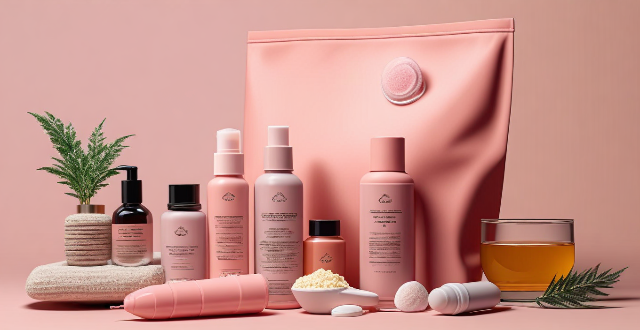The article discusses whether natural or organic cosmetics have a shorter expiration period compared to synthetic ones. It highlights factors such as preservatives, ingredients, packaging, and manufacturing processes that affect the shelf life of cosmetics. Natural/organic cosmetics generally have a shorter shelf life due to the use of natural preservatives, ingredients that degrade quickly, eco-friendly packaging, and less rigorous manufacturing processes. In contrast, synthetic cosmetics contain chemical preservatives and synthetic ingredients designed to be stable over time, resulting in a longer shelf life. However, the choice between natural/organic and synthetic cosmetics should be based on personal preferences and concerns regarding health and environmental impact.

Do Natural or Organic Cosmetics Have a Shorter Expiration Period?
Introduction
The question of whether natural or organic cosmetics have a shorter expiration period is a common one among consumers who are concerned about the ingredients in their skincare and makeup products. In this article, we will explore the factors that contribute to the shelf life of cosmetics and compare the expiration periods of natural/organic and synthetic cosmetics.
Factors Affecting Cosmetic Shelf Life
1. Preservatives
- Natural/Organic Cosmetics: Often use natural preservatives like essential oils, which may not be as effective as synthetic preservatives.
- Synthetic Cosmetics: Typically contain chemical preservatives that extend their shelf life.
2. Ingredients
- Natural/Organic Cosmetics: Use natural ingredients that may degrade more quickly than synthetic ones.
- Synthetic Cosmetics: Contain synthetic ingredients designed to be stable over time.
3. Packaging
- Natural/Organic Cosmetics: May come in eco-friendly packaging, which could potentially affect shelf life if not properly sealed.
- Synthetic Cosmetics: Often packaged in airtight containers to prevent exposure to air and contaminants.
4. Manufacturing Process
- Natural/Organic Cosmetics: May undergo less rigorous manufacturing processes, leading to variations in product quality and shelf life.
- Synthetic Cosmetics: Generally produced under stricter quality control standards, resulting in consistent shelf life across batches.
Comparing Expiration Periods
Natural/Organic Cosmetics
- Shorter Shelf Life: Due to the factors mentioned above, natural or organic cosmetics generally have a shorter shelf life than synthetic ones. This means they may need to be used up faster or stored under specific conditions to maintain their effectiveness and safety.
- Benefits: Despite the shorter shelf life, many people choose natural or organic cosmetics for their perceived gentleness on the skin and lack of harmful chemicals. Additionally, these products often align with ethical and environmental values.
Synthetic Cosmetics
- Longer Shelf Life: Synthetic cosmetics typically have a longer shelf life due to the inclusion of preservatives and other stabilizing agents that help maintain their quality over time.
- Drawbacks: While synthetic cosmetics may offer extended shelf life, some consumers are concerned about potential health risks associated with certain ingredients or the environmental impact of non-biodegradable products.
Conclusion
In conclusion, natural or organic cosmetics do tend to have a shorter expiration period compared to synthetic cosmetics due to differences in preservatives, ingredients, packaging, and manufacturing processes. However, it's important to note that the choice between natural/organic and synthetic cosmetics should be based on personal preferences, skin type, and individual concerns regarding health and environmental impact. By understanding the factors that influence shelf life, consumers can make informed decisions about their beauty routine while ensuring they use safe and effective products.